Landlords Resist Tenant Protections
With Greater Urgency, Renters Mobilizing Against Housing Crisis
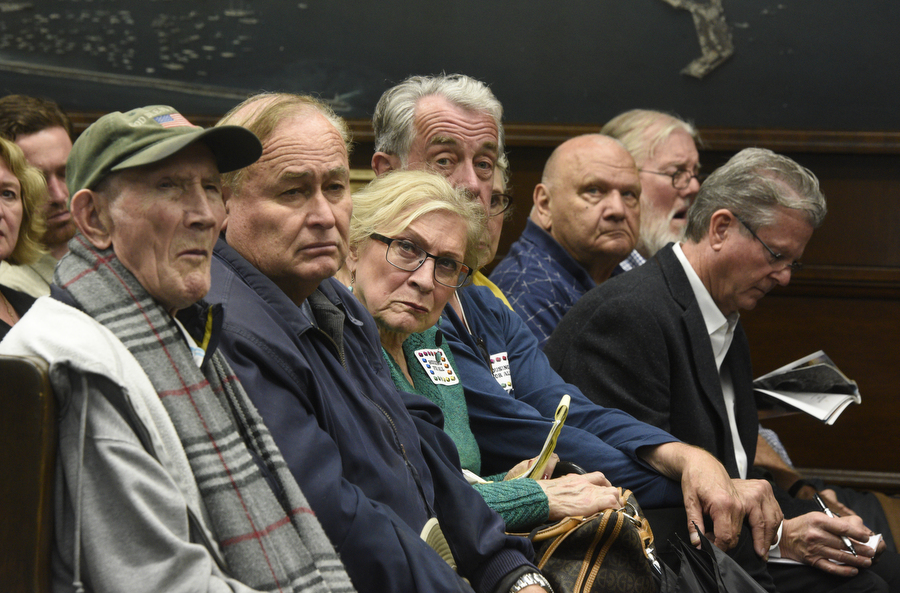
The tale of Santa Barbara’s two cities was told again and again Tuesday evening as landlords and tenants turned out in droves to debate a menu of proposed protections for renters before the City Council. The discussion was prompted by spiking rental rates, mass evictions, criminally poor living conditions, and an excruciatingly low vacancy rate, all of which have plagued Santa Barbara for decades but appear to have reached a tipping point as tenants — who make up 60 percent of residents — are using greater force to bend the ears of city leaders to address the overall housing crisis.
On the table were five strategies for the council to consider: an enhanced mediation program meant to resolve landlord-tenant conflicts; a requirement that landlords offer one-year leases to provide a greater level of housing stability; the creation of a safety-inspection program to ensure basic habitability standards; the implementation of a “just cause” eviction ordinance that would prohibit evictions except under specific circumstances; and, lastly, the adoption of rent-control measures to slow climbing rental rates.
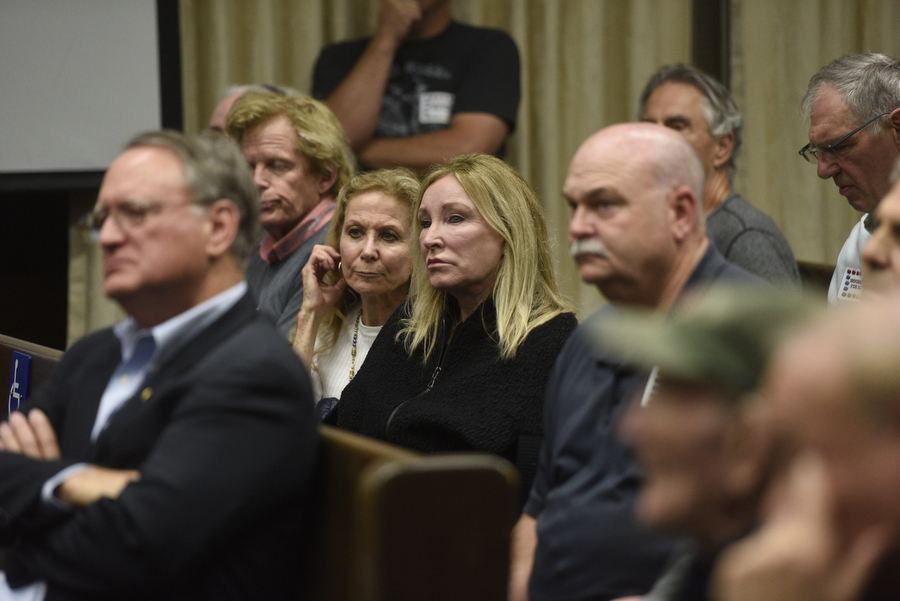
Landlords put on a show of strength to oppose the package of tenant protections. Many of them were alerted to the meeting by a Santa Barbara Rental Property Association email, which featured a screaming headline warning members of impending “Rent Control!” The night before, more than 200 property owners convened at the DoubleTree Resort to strategize. The meeting was closed to reporters, and association director Laura Bode declined an interview afterward. When City Attorney Ariel Calonne expressed disappointment over Bode’s message, she responded that her intention was to “bring people together” to develop common solutions.
The council chambers overflowed with landlords who arrived early to the 6 p.m. hearing to secure seating and a chance to speak. The majority described themselves as mom-and-pop operators who maintain a small number of units and collect modest rent checks. They rejected the image of greedy landlords squeezing and evicting helpless renters, and they worried onerous regulations would eat into their livelihoods and derail retirement plans. Many pointed to the problems spawned by rent control ordinances in San Francisco and Santa Monica, and others warned government involvement would strain relations across the board.
“These are bad ideas,” said Tommy Thompson with the California Apartment Association. “Rent control, just-cause evictions — these are things that ruin communities.” David Kim, speaking on behalf of the Santa Barbara Association of Realtors, cautioned against blanket regulations that would cause the “whole community to suffer” when only a fraction of landlords mistreat their tenants. Landlord Dario Pini’s name was mentioned more than once. In a letter to the council, the association also outlined several existing policies meant to chip away at the housing crisis — the city’s affordable-housing program, density bonus incentives, a tenant-displacement-assistance ordinance, and so on. Let’s concentrate on those methods, said Kim, rather than set more rules.
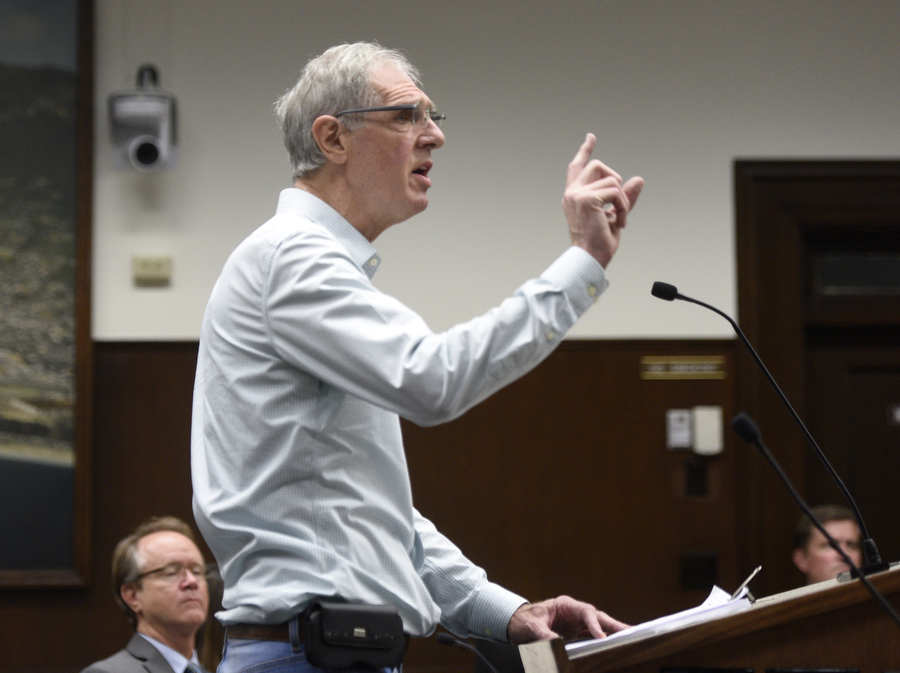
The frustration of property owners boiled over on occasion. A few called the tenant-protection package a “handout,” claimed reports of rent increases were “lies,” and described mandatory safety inspections as “government intrusion.” Wagging his finger at the council, Frank Cox demanded: “Keep your hands off my properties and off my tenants!” Michelle Salmon repeated, “I don’t like to be told what to do,” and then refused to yield the microphone.
Toward the latter part of the five-hour hearing, tenants who’d been forced to wait outside took their turn at the podium. “Some of these property owners, despite being elder in years, are acting like children,” said Kyle Lee. “You live in a country with rules and regulations. Sometimes people are going to tell you what to do.” Speaker after speaker described the challenges of renting in a drum-tight market where landlords hold all the cards. “Finding a rental is like the Hunger Games in Santa Barbara,” said Hillary Blackerby. “It’s very, very intense.” She said it’s important to recognize the vulnerability of renters in such a power dynamic. “For owners, it’s their investment. For renters, it’s our shelter.” California Democratic Party Secretary Daraka Larimore-Hall agreed. “Please, can we not be naive about our conversation and act as if the landlord-renter relationship is one of equality?” he asked.
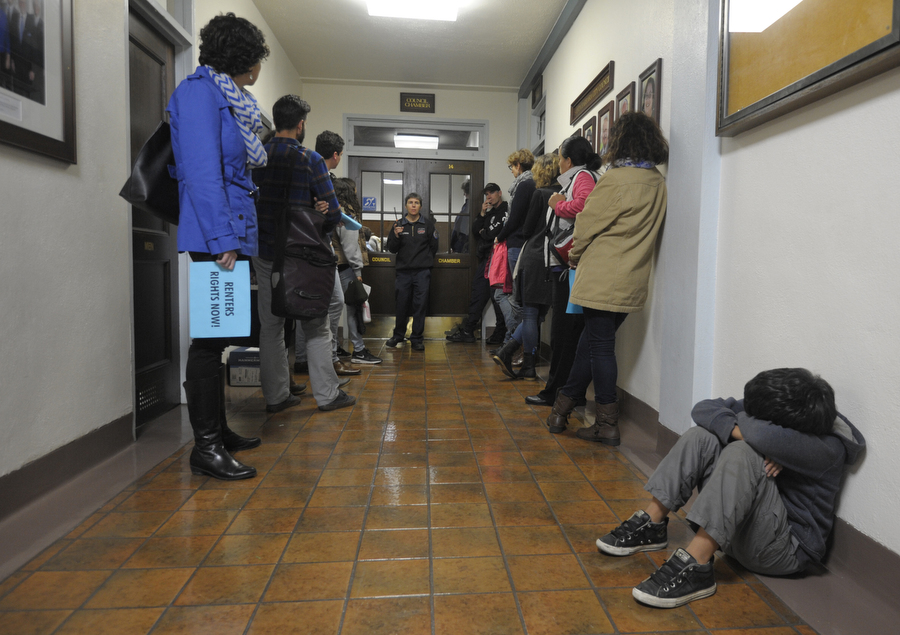
Santa Barbara City College President Anthony Beebe said he supported a just-cause eviction ordinance. “Hardly a week goes by that the college hears of students getting evicted with short notice for no reason,” he said. Frank Rodriguez, a lead organizer with CAUSE (Central Coast Alliance United for a Sustainable Economy), was similarly in favor, recalling the mass evictions that took place over the holidays last year at the Ivy Apartment Home Complex on West Carrillo Street. Working families who had lived there for decades were left to sleep in their cars when the new owner, motivated by higher profits, ordered them to clear out, he said.
Like a number of other tenants, Anna Marie Gott acknowledged the many property owners who treat their tenants fairly. But, she said, “we have some really terrible landlords. Some of them are sitting in this room.” They’ve turned apartments into illegal short-term vacation rentals, raised rents by as much as 20-30 percent, and evicted elderly residents, she claimed. Santa Barbara native Steve Stormoen described the rent of his girlfriend, a graduate student, jumping 50 percent overnight. “I want to love this town, but it’s very hard when it feels like me, my friends, and my neighbors simply aren’t welcome.”
By the end, the council declined to make any major decision, citing the late hour and the intricacies of the issue. But its members did make two minor moves. They voted to enhance the mediation program — which, last year, intervened in 1,478 disagreements — and to form a task force of landlords and tenants who will study the proposals for an inspection program, mandatory leases, and just-cause evictions. The details of both decisions will be worked out at a later date. Rent control was taken completely off the table.
“The fundamental problem is we have an extraordinarily low vacancy rate,” said Councilmember Gregg Hart. “The council has been struggling for many years with that issue. Today is step one.” Mayor Helene Schneider said she was “positive the vast majority of landlords want the best for their tenants,” but she acknowledged recent incidents that have caused tenants “tremendous pain.” “Our challenge is to create a set of rules to protect the most vulnerable.”
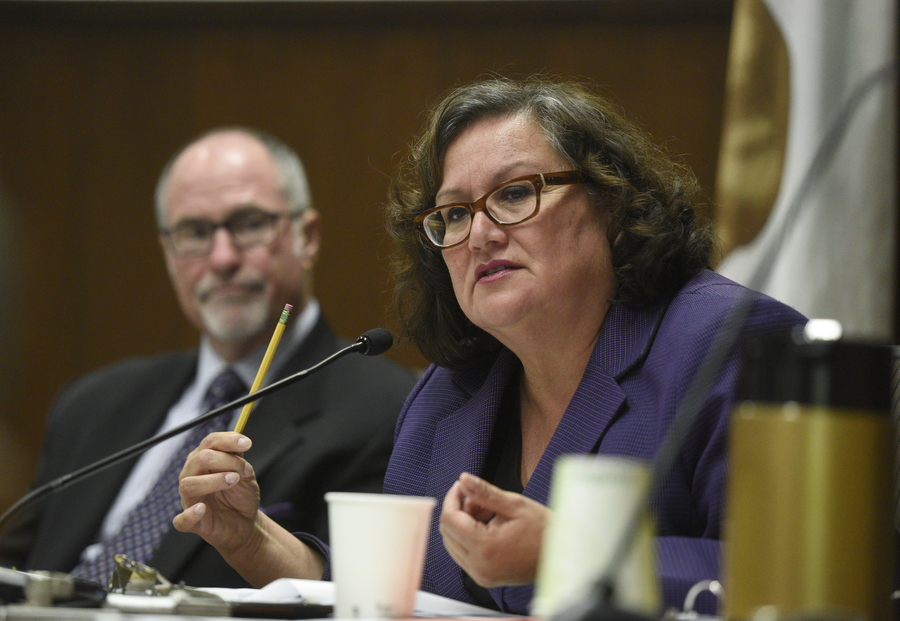
Councilmembers Frank Hotchkiss and Randy Rowse were skeptical of new regulations. “When we, the government, get into trying to control the market, we never get to where we want to go,” said Rowse. “The market is a cruel teacher, but it does even things out in the end.”
The decisions made on the mediation program and task force weren’t enough for Councilmember Cathy Murillo, who lobbied hard for just-cause evictions, an issue that’s taking on greater urgency in her Westside district, she said. “Right here, right now is our chance,” she pleaded to her colleagues. “I want to do more tonight.” Finding no support, she lamented, “It seemed like we were right on the edge of doing the right thing.”




